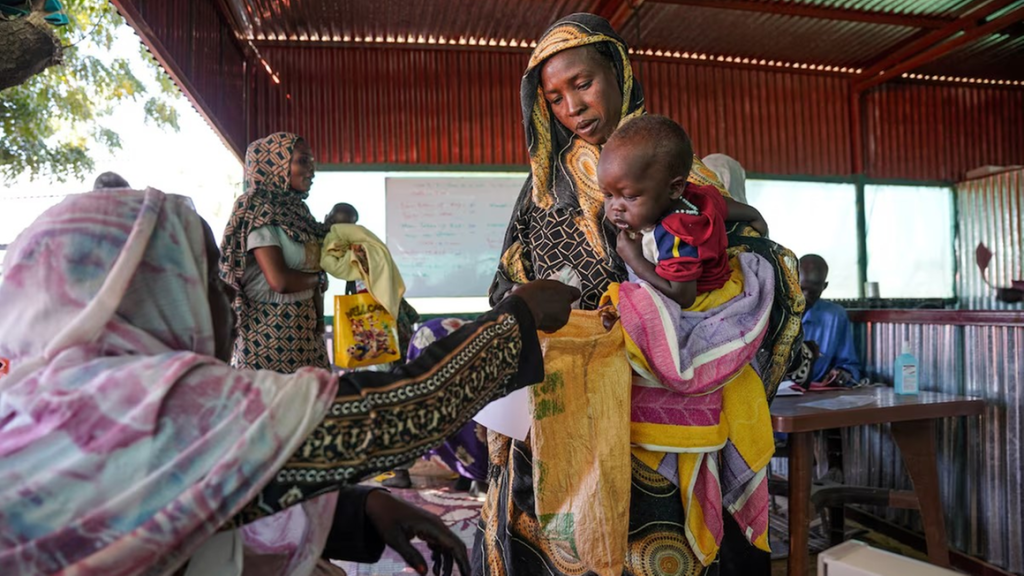The African Union (AU) is renewing its efforts to mediate peace in Sudan amid a deepening humanitarian crisis and the proliferation of competing mediation initiatives.
This week, the AU Peace and Security Council approved an “all-inclusive” meeting scheduled for July 10 to 15 in Addis Ababa, Ethiopia. This meeting will bring together Sudan’s warring factions alongside various political groups, under the banner of Political Dialogue, spearheaded by the AU High-Level Panel on Sudan. The panel is chaired by Ghanaian lawyer Mohamed Ibn Chambas, who also serves as the AU’s High Representative for Silencing the Guns. Other key members include former Ugandan Vice-President Specioza Wandira-Kazibwe and Mozambican diplomat Francisco Madeira.
The AU aims to establish a sustainable, people-driven resolution to the conflict and to restore constitutional governance in Sudan. However, the success of this initiative hinges on the participation of the conflicting parties, as acknowledged by the AU Peace and Security Council in its recent statement.
Since the outbreak of violence in April 2023 between the Sudan Armed Forces (SAF) and the Rapid Support Forces (RSF), multiple peace initiatives have been attempted. Among them was the Jeddah Process, supported by the United States and Saudi Arabia, which failed to yield lasting ceasefire agreements. Similarly, efforts by the Intergovernmental Authority on Development (IGAD) were undermined when Sudan rejected Kenya’s leadership in the talks, leading IGAD to later support the Jeddah Process alongside the AU.
To enhance coordination in peace efforts, the AU authorized Egypt to facilitate dialogues among Sudanese stakeholders starting next week, complementing the AU/IGAD-led initiatives.
During its 1218th meeting on June 21, chaired by Uganda, the Council underscored the importance of cohesive peace efforts involving the AU, IGAD, and regional partners. The Council also expressed concerns about external interference in Sudan’s conflict, indicating that such actions have exacerbated the situation.
The AU has noted repeated violations of its communiqués and UN Security Council resolutions regarding Sudan, including last month’s call for the establishment of humanitarian corridors. Recently, Sudan accused the United Arab Emirates (UAE) of supplying weapons to the RSF, a claim the UAE has firmly denied, labeling it a distortion of facts.
Since the war began, nearly 17,000 lives have been lost, according to the Armed Conflict Location and Event Data Project. The conflict has resulted in a staggering humanitarian crisis, displacing approximately 10 million people, with 1.5 million fleeing to neighboring countries.
A recent report highlighted the alarming state of food insecurity in Sudan, with over 25 million people facing starvation. The Integrated Food Security Phase Classification (IPC) report anticipates that more than 755,000 individuals in ten states, including Greater Darfur, will confront severe hunger conditions by September 2024.
As the conflict continues, agricultural regions have turned into battlegrounds, devastating food production and leading to widespread malnutrition, particularly among vulnerable groups like children and pregnant women.
Mercy Corps CEO Tejada D’Oyen McKenna emphasized the dire situation, noting that parts of Sudan, particularly Greater Darfur, have been isolated from essential aid, leading to catastrophic consequences for food security and healthcare access.
Despite urgent warnings from aid organizations, the international response has been grossly inadequate, with only 17 percent of the Humanitarian Response Plan funded, according to UN data.
US Ambassador to the UN, Linda Thomas-Greenfield, urged the Security Council to enforce international humanitarian law and facilitate aid delivery. She highlighted the critical need for an immediate end to hostilities, unrestricted humanitarian access, a transition to civilian governance without military influence, and accountability for those responsible for atrocities.
The AU’s renewed initiative signifies a crucial step towards resolving the ongoing crisis in Sudan, though its success will depend heavily on the willingness of all parties to engage constructively in the peace process.




















